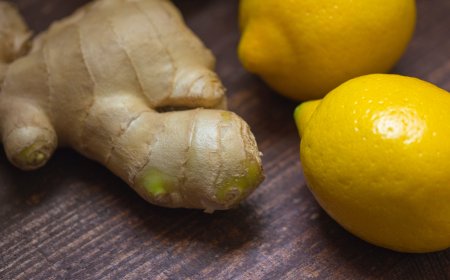The most important foods for heart and vascular health
Research indicates that consuming foods rich in omega-3 fatty acids such as salmon and flaxseed, along with supplements of fiber and antioxidants found in colorful fruits and vegetables, is crucial for maintaining heart and vascular health

Research indicates that consuming foods rich in omega-3 fatty acids such as salmon and flaxseed, along with supplements of fiber and antioxidants found in colorful fruits and vegetables, is crucial for maintaining heart and vascular health
The most important foods for heart and vascular health
The impact of food on heart health is a vital and intriguing topic, where key nutrients play a crucial role in maintaining heart health. Among these important nutrients, omega-3 and fiber stand out for their notable benefits in supporting and enhancing heart health. Omega-3 is considered one of the essential fatty acids that the body needs, primarily found in fatty fish such as salmon and sardines, as well as in flaxseeds and olive oil. These healthy fats are beneficial for the heart as they contribute to lowering harmful cholesterol levels in the blood and reducing the risk of heart diseases such as angina and heart attacks.
Meanwhile, fiber is an essential part of a healthy diet, abundant in fruits, vegetables, and whole grains. Fiber plays a crucial role in lowering harmful cholesterol levels and enhancing the digestive process, reducing the likelihood of fatty deposits forming in the arteries and minimizing the risk of heart diseases.
In summary, regularly incorporating foods rich in omega-3 and fiber into the diet plays a vital role in maintaining heart health and reducing the risk of heart diseases, highlighting the importance of a healthy diet in preserving heart health and overall quality of life.
Heart-healthy foods
Salmon and flaxseed are important foods for heart health, each offering unique benefits that contribute to preventing heart diseases and enhancing overall cardiac health.
To begin with, salmon is a rich source of omega-3 fatty acids, which are essential for heart health. Regular consumption of salmon helps lower harmful cholesterol levels in the blood, reduces the risk of blood clotting and arterial constriction, thus decreasing the risk of heart diseases and strokes.
As for flaxseed, it is a rich source of soluble fiber, which plays a crucial role in improving heart health. Fiber helps lower harmful cholesterol levels in the blood and promotes the digestive process, reducing the likelihood of fatty deposits accumulating in the arteries and minimizing the risk of heart diseases.
Therefore, it is recommended to include salmon and flaxseed regularly in the diet as part of a preventive strategy against heart diseases. These foods are highly beneficial for heart health and improving its functions, and should be targeted in the diet to effectively maintain heart health.
Strengthening the heart and improving blood vessels
Vegetables and antioxidant-rich fruits are essential in maintaining heart health and improving blood vessels due to their content of nutritional compounds that contribute to strengthening the functions of the heart and blood vessels.
Vegetables and fruits contain a variety of essential nutrients such as vitamins, minerals, fiber, and active plant compounds like flavonoids and polyphenols, which act as antioxidants. These antioxidants help reduce the effects of free radicals in the body, which can cause damage to cells and tissues, including the heart and blood vessels.
For example, fruits such as berries, strawberries, and cherries contain high levels of flavonoids and polyphenols, which help strengthen blood vessel walls and improve blood flow, reducing the risk of heart diseases such as angina and heart attacks. Additionally, dark leafy vegetables like spinach and kale are high in vitamin K, which helps strengthen blood vessels and maintain heart health.
Therefore, the diet to maintain heart health should include adequate amounts of antioxidant-rich vegetables and fruits, as these foods are an essential part of a preventive strategy against heart diseases and improving overall heart health.
The importance of proper nutrition in heart health
The importance of proper nutrition in heart health lies in its crucial role in preventing heart diseases and promoting overall cardiac health. Numerous studies indicate that a healthy diet can significantly reduce the risk of heart and vascular diseases.
One of the key foods that protect against heart diseases is fruits and vegetables, as they are rich sources of vitamins, minerals, fiber, and active plant compounds. These nutrients help lower harmful cholesterol levels in the blood, promote vascular health, and reduce the risk of inflammation that leads to heart diseases.
In addition to fruits and vegetables, fatty fish like salmon and tuna are important sources of omega-3 fatty acids, which are essential fats for heart health. Research shows that regular consumption of fatty fish can reduce the risk of heart attacks and angina.
Furthermore, it is advised to avoid foods rich in saturated fats and cholesterol, such as fatty red meats and processed foods, as consuming these foods may increase the risk of heart and vascular diseases.
Overall, a healthy diet should include a variety of nutritious foods that protect and promote heart health, while avoiding foods linked to increased risk of heart diseases. This underscores the importance of proper nutrition in maintaining heart health and preventing heart and vascular diseases.
The best dietary choices to promote heart health
Healthy dietary choices significantly maintain and enhance heart health, as the heart's performance is directly affected by the food we consume. Here are some of the best dietary options that can help promote heart health
1. Fatty Fish: Fish such as salmon and tuna are rich in omega-3 fatty acids, which help lower harmful cholesterol levels and improve heart function.
2. Fruits and Vegetables: Fruits and vegetables contain dietary fiber, vitamins, minerals, and antioxidants, which help lower blood pressure and improve blood vessel health.
3. Whole Grains: Whole grains contain dietary fiber and essential nutrients like vitamin E and magnesium, which help reduce the risk of heart and vascular diseases.
4. Nuts and Seeds: Nuts and seeds contain healthy fats, fiber, and proteins, which promote heart health and reduce harmful cholesterol levels.
5. Healthy Oils: Healthy oils such as olive oil and canola oil contain unsaturated fats and help improve cholesterol levels in the blood.
6. Low-Fat, Low-Sodium Foods: Consumption of foods rich in saturated fats and sodium, such as fatty meats and processed meals, should be reduced as they may increase the risk of heart and vascular diseases.
By following a healthy diet and incorporating these foods into our daily routine, we can effectively and sustainably improve heart health and reduce the risk of heart and vascular diseases.
Improving heart health through natural foods
Improving heart health through natural foods is considered important and effective, as natural foods contain many nutritional compounds that can help strengthen the heart and improve its functions overall.
1. Fatty Fish: Fish such as salmon and tuna contain omega-3 fatty acids, which help reduce the likelihood of blood clots in the arteries and improve blood pressure, thereby promoting heart health.
2. Fruits and Vegetables: Fruits and vegetables are rich in dietary fiber, vitamins, and minerals, which work to lower harmful cholesterol levels in the blood and enhance the functions of the heart and blood vessels.
3. Nuts and Seeds: Nuts and seeds contain healthy fats, fiber, and proteins, which promote heart health by lowering bad cholesterol levels and strengthening the arteries.
4. Healthy Oils: Healthy oils like olive oil and canola oil contain unsaturated fats and antioxidants that help reduce heart inflammation and improve blood flow.
5. Whole Grains: Whole grains are rich in dietary fiber, minerals, and vitamins, which help lower blood pressure and strengthen the heart.
6. Healthy Beverages: Healthy beverages such as green tea and coffee, when consumed moderately, contain compounds that help reduce the risk of heart diseases.
In summary, improving heart health through natural foods requires incorporating a variety of nutrient-rich foods into the diet, which promotes heart health and effectively reduces the risk of heart and vascular diseases in a sustainable manner.
Heart and vascular nutrition
Heart and vascular nutrition is an important field aimed at improving heart health and maintaining vascular health to reduce the risk of cardiovascular diseases. Heart and vascular nutrition requires incorporating a variety of foods and nutrients that help improve heart function and strengthen blood vessels.
1. Omega-3: Omega-3 fatty acids are essential for heart health, as they help lower harmful cholesterol levels and reduce the risk of blood clots. Omega-3 can be found in fatty fish such as salmon and sardines, as well as in some oils like canola oil and olive oil.
2. Fiber: Fiber plays a crucial role in improving heart health by lowering harmful cholesterol levels in the blood. Fiber can be found in vegetables, fruits, and whole grains.
3. Fruits and Vegetables: Fruits and vegetables contain antioxidants, vitamins, and minerals that promote heart health and protect it from diseases. It is recommended to include a variety of fruits and vegetables in the daily diet.
4. Nuts and Seeds: Nuts and seeds contain healthy fats, proteins, and fiber, which promote heart health and help lower cholesterol levels.
5. Whole Grains: Whole grains contain fiber and other nutrients that strengthen the heart and improve its function.
6. Limiting Saturated Fats and Cholesterol: Limiting intake of saturated fats and cholesterol, such as fatty meats and full-fat dairy products, is important for maintaining heart health.
Heart and vascular nutrition requires following a balanced diet that includes a variety of healthy and nutritious foods that help improve heart and vascular health and prevent heart diseases.
Summary
The most important foods for heart and cardiovascular health include fatty fish like salmon and tuna, which contain Omega-3 fatty acids that help lower cholesterol levels and strengthen blood vessels. Additionally, fruits and vegetables containing fiber and antioxidants improve heart health and reduce the risk of heart disease. Furthermore, nuts and seeds promote heart health with healthy fats and proteins. Whole grains, rich in fiber and nutrients, also support heart health. It's advisable to avoid saturated fats and cholesterol to maintain good heart health. Consuming these foods regularly as part of a balanced diet contributes to maintaining heart and cardiovascular health and preventing heart-related diseases.
Sources
1. American Heart Association
- Their official website provides articles and tips on heart-healthy nutrition.
2. Mayo Clinic
- Offers articles and tips on healthy nutrition and its role in improving heart and vascular health.
3. WebMD
- Provides articles and information about foods that improve heart health and strengthen blood vessels.
What's Your Reaction?












































































































